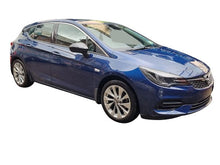
Sustainable Driving: Exploring Trends and Innovations in the Automotive Industry
The need for sustainability has become more pressing than ever, and the automotive industry is at the forefront of this vital transformation. As climate change impacts continue to escalate, car manufacturers are adopting innovative practices and technologies to create greener, more efficient vehicles. In this article, we will explore key trends and innovations in sustainability within the automotive sector, and how these advancements are not only reshaping the industry but also providing drivers with environmentally friendly choices.
Understanding the Importance of Sustainability in Automotive
With increasing concern about the environmental impacts of traditional gas-powered vehicles, many stakeholders within the automotive industry recognize the urgent need for sustainable alternatives. The automotive sector is responsible for a significant portion of greenhouse gas emissions, and transitioning to sustainable practices is crucial for achieving global climate targets.
Impact of Automotive Emissions
According to studies, the transportation sector contributes approximately 29% of total greenhouse gas emissions in the United States alone. As awareness raises among consumers, there is an increasing demand for environmentally conscious choices. The automotive industry is responding by producing vehicles that emit fewer emissions and have a lower overall environmental impact.
Innovations Driving Sustainable Automotive Solutions
Innovation is the lifeblood of the automotive industry, and in recent years, manufacturers have introduced groundbreaking technologies that push sustainability to the forefront. Below are several key innovations accelerating the shift towards greener vehicles:
Electric Vehicles (EVs)
Electric vehicles are leading the charge in reducing dependence on fossil fuels. With advancements in battery technology, manufacturers are producing EVs that have a longer range, shorter charging times, and reduced costs. Additionally, government incentives for EV purchases are making these vehicles increasingly attractive to consumers.
Hybrid Vehicles
Hybrid vehicles blend traditional gasoline engines with electric motors, allowing drivers to experience the best of both worlds. These vehicles consume less fuel, lower emissions during operation, and appeal to those not ready to take the full leap into electric drivetrains.
Alternative Fuels: Fueling the Future
Another vital aspect of sustainability in the automotive sector is the exploration of alternative fuels. These fuels can significantly impact the reduction of greenhouse gases. Here are some notable examples:
- Biodiesel: Produced from renewable resources, biodiesel can be used in diesel engines and contributes to lower emissions.
- Hydrogen Fuel Cells: Vehicles powered by hydrogen emit only water vapor as a byproduct. Research and infrastructure development for hydrogen fuel cell vehicles are gaining momentum.
- Ethanol: Ethanol-blended gasoline can reduce reliance on petroleum while decreasing harmful emissions.
Recycling and Reuse: A Circular Economy Approach
The push for sustainability extends beyond vehicle operation and into the manufacturing process itself. Automotive manufacturers are increasingly adopting a circular economy model, where materials are reused and recycled to minimize waste. This approach not only reduces environmental impact but also conserves valuable resources.
Recycling Components
Many automotive manufacturers are exploring ways to recycle parts and materials. Glass, metals, and plastics can be repurposed, significantly reducing the energy required to produce new materials. More companies are also emerging that specialize in recycled auto parts, providing eco-conscious consumers with sustainable choices.
Eco-Friendly Manufacturing Processes
Innovation in manufacturing methods is also helping to decrease environmental footprints. Companies are investing in processes that use fewer resources and produce less waste. For instance, initiatives like 3D printing allow for more precise manufacturing, potentially reducing the number of materials used in vehicle production.
Sustainable Design: Beyond the Drive
As the automotive industry embraces sustainability, design is evolving to reflect these principles. Manufacturers are focusing on creating vehicles that are not only functional but also environmentally responsible.
Energy-Efficient Designs
Automotive designers are integrating more energy-efficient elements into their vehicles, from aerodynamics that reduce drag to lightweight materials that enhance fuel efficiency. These design choices contribute to lower fuel consumption and reduced emissions.
Biodegradable Materials
In an effort to replace traditional materials that contribute to environmental degradation, manufacturers are experimenting with biodegradable materials. Incorporating plant-based plastics and fibers can reduce the overall carbon footprint of a vehicle without compromising performance or safety.
The Role of Government Regulations
Government regulations are a driving force in encouraging the automotive industry to adopt sustainable practices. Regulatory frameworks often set targets for emissions reductions, fuel efficiency, and electric vehicle adoption, shaping the direction of automotive development.
Global Perspectives on Automotive Regulations
Countries around the world are implementing stricter regulations to combat climate change. In the European Union, for instance, ambitious targets to reduce CO2 emissions from new cars and vans are challenging automakers to innovate rapidly. Meanwhile, in the U.S., various states are enacting policies to encourage cleaner energy vehicles, resulting in a varied landscape for manufacturers.
The Consumer’s Voice in Sustainability
Consumer preferences are increasingly favoring eco-friendly options, shaping the market dynamics of the automotive industry. Surveys show that a significant percentage of consumers are willing to pay more for vehicles that align with their environmental values.
Shifting Consumer Priorities
The desire for sustainable solutions has led to growing interest in electric vehicles, hybrid cars, and automotive brands that prioritize ethical practices in their operations. As consumers become more informed, their buying decisions are affecting how manufacturers approach sustainability.
The Importance of Transparency
Manufacturers are learning that transparency regarding their sustainability efforts boosts consumer confidence. Many brands are now sharing detailed sustainability reports that outline their suppliers, production processes, and material sourcing. This level of commitment resonates with consumers seeking greener options.
Navigating Challenges in Sustainability
While there is significant progress in the automotive industry, challenges remain. From supply chain complexities to consumer awareness, the road towards full sustainability is intricate and requires collaboration among various stakeholders.
Supply Chain Sustainability
One of the prominent challenges is ensuring sustainability throughout the supply chain. Many manufacturers are reevaluating their suppliers to ensure that the materials used to build vehicles come from sustainable sources, but achieving this transparency can be a complex process.
Consumer Education
Another barrier is educating consumers about the benefits of sustainable vehicles. Many potential buyers still harbor misconceptions about electric vehicles, range anxiety, and charging infrastructure. Automotive brands and advocates must prioritize education and outreach to dispel these myths.
Looking Ahead: The Future of Sustainable Automotive
The future of the automotive industry is undoubtedly driven by sustainability. Embracing alternative energy sources, recycling materials, and adopting eco-friendly practices are becoming integral to the industry's evolution. As technology continues to grow and consumer demand shifts, the automotive landscape will continue transforming in remarkable ways.
The Era of Smart Mobility
In conjunction with sustainability efforts, the rise of smart mobility concepts is transforming urban transportation. Shared mobility solutions, including ride-sharing services and electric scooters, contribute to reducing vehicle ownership burdens, leading to fewer cars on the road and lower emissions.
Collaboration for a Greener Future
Collaboration within the industry, as well as between manufacturers, government entities, and environmental organizations, will be crucial in driving sustainable initiatives further. Creating partnerships can lead to innovative solutions that transcend traditional boundaries and make a significant impact.
Take the Green Road Ahead!
The call for sustainability in the automotive industry has never been louder. With ongoing innovations, emerging technologies, and supportive consumer trends, the automotive landscape is shifting towards a greener future. Embrace this evolution, and remember that as drivers, we can play a part by making informed choices that benefit our planet. Let's steer towards a sustainable tomorrow—together, we can drive change!





















